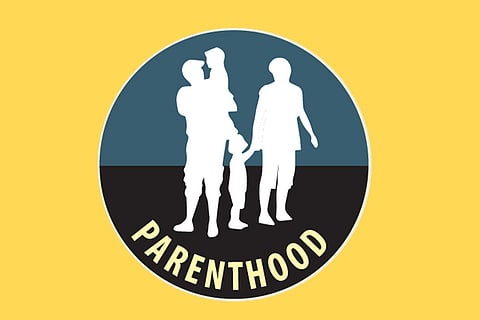

Chennai
In 2007, the Government of India initiated Adolescent Education Program (AEP) in schools to empower children with sex education. Unfortunately, as many as 13 states banned this program as they felt it was against the Indian culture. Even now there is no uniformity in the way this topic is dealt with at schools. Most schools leave out parts on sex education they feel are uncomfortable talking about.
So, we cannot bank only on schools to teach our children crucial life lessons on sexuality. It is the responsibility of every parent to build healthy sexuality in their children, educate them about sex abuse and sex so that children can have a sound sexual identities.
Here are a few pointers to start conversations.
Work on yourself:
Talking about sex and sexuality has been a taboo topic. The first step is to address our own discomfort. Many parents worry, that talking to children about sex/sexuality will lead to experimentation. However, research shows that children, who are comfortable to approach their parents and ask questions, are likely to make better choices based on correct information. Children who cannot talk to their parents often bank on friends, and porn sites and media for sex education leading to titillating unhealthy attitudes.
The good news is that there are several books and online resources available to us now. It is important to read up and equip ourselves to be able to educate our children and answer their questions. If we feel awkward about a question, one can say, ‘Good question! I’m glad you asked me. Let me think about how I can explain it in a way that will make sense to you.’ This gives us time to reflect on how to share, feel calm and rehearse the response if needed.
Parents from our sessions have shared how they practice responses with their spouse or in front of a mirror to be comfortable with these themes. Some also share that conversing with children while driving is easier as they don’t have to make eye contact.
When to start:
Building a healthy sexuality is not a onetime conversation. Experts suggest that sex education in children ought to start as early as possible and continue through the growing years, sharing age appropriate content at each stage. Teach children that some body parts are private and name them correctly like penis or vagina. This can be done for even 2-3 year olds. Name private parts just as the way you label ‘ears’ and ‘eyes’. This will ensure that there is no miscommunication if a child later tells you that someone touched her/him inappropriately. When a child asks a question, it is always a good time to talk about what they’ve asked.
How much to say:
This is age dependent and something every parent needs to decide for their own child. What are the messages we are sharing with them? Do our responses make them feel comfortable enough to ask doubts? When they ask about childbirth, to young children we could say how the sperm from a father and the egg from a mother made a baby. And the baby was born with the doctor’s help at the hospital. As they grow older, we could add details to the information. Our responses offer us a great opportunity to build values we want to pass on to our children e.g. about respecting their own body, self image, gender roles, consent etc. Seeing animals mate could be a good conversation starter too. One parent when asked what the ‘F’ word meant, responded by saying that some people use the word badly to describe something that is actually natural and beautiful.
Talk about puberty before it starts:
Girls usually attain puberty between ages from 8 to 13 and boys from 11 to 14 years. It is advisable to talk about menstruation not only to girls but also to boys. If the boys are aware, then they will be more sensitive towards their mothers, sisters and other girls. We could explain to our sons that instead of making fun of a girl with a stained skirt, they could bring it to her attention directly or through a teacher or her friend. Several books are available to explain puberty that are designed to be read by children and parents together.
Children observe how comfortable their parents are to talk and handle questions about sex, the way parents express their own sexuality, and the way the parents physically interact with each other and them. All these aspects influence a child’s sexual development and paves the path to a healthy attitude towards it.
Recommended resources
www.tarshi.net — The Yellow Book for Parents / Red and Blue book for children.
www.tulir.org (Centre for the prevention and healing of child sex abuse)
Books by Lynda Madaras
Ready, set, grow – A ‘what’s happening to my body?’ Book for younger girls
On your mark, get set, grow! A ‘what’s happening to my body?’ Book for younger boys
— Prerna Kalra is a certified parent educator at Parenting Matters, an organization which empowers parents to build deeper connections within families. To know more about our programs and workshops, look us up on www.parentingmatters.in or write to us at parentingmattersindia@ gmail.com
Visit news.dtnext.in to explore our interactive epaper!
Download the DT Next app for more exciting features!
Click here for iOS
Click here for Android